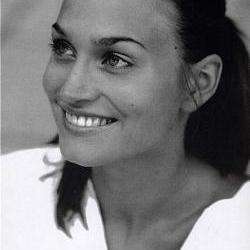Rudolf Buchbinder is a name now synonymous with classical piano interpretation. He has over 100 recordings in his discography, and his recent series of complete Beethoven sonatas the world over has given him an authority of nearly biblical proportions. The audience at the Konzerthaus was in for a treat last night as Buchbinder took the stage to usher in the 2013/14 season, and they were not in the least disappointed.
Buchbinder began the evening with Mozart’s Twelve Variations in C major on “Ah, vous dirai-je, maman”, a theme English-speakers will recognize immediately as “Twinkle, Twinkle Little Star”. With consummate clarity of line and ringing articulation, he brought magic into the darkened hall, introducing the theme and moving through its variations with ease and purpose. The passagework gleamed like pearls on a string. His tempos were never rushed, yet energetically engaging, and every ornament and trill was perfection. This minor work of Mozart’s, not something particularly deep or complex in either its subject matter or treatment, was nonetheless incredibly moving in its simplicity, every tiny chromaticism or interesting nuance explored and honored.
Schubert’s Four Impromptus D.935 followed, and were also gloriously received. These works, some of Schubert’s most popular during the 19th century, show clearly his struggle to deal with the problem of the form of the sonata, and although they clearly belong together and have properties similar to that of a four-movement sonata, the key relationships and other structural departures are considerable. The F minor first impromptu, marked Allegro moderato, has the character of an overture: often lyrical but with stormy outbursts and sudden changes of mode. The second, an A flat major Allegretto, opens with what sounds like a folk tune and features compound rhythms and triplets. Buchbinder’s lyrical, singing tone and perfect feeling for agogic movement brought it to life beautifully, as did his meticulous construction of every phrase. The B flat major Scherzo which followed sounds initially more like a minuet; the scherzo quality coming to the fore later as it moves through its five variations. Buchbinder shone particularly brightly here. All pianos would love to sing like his Steinway did through the opening theme, and the playful, flighty quality of his runs in the final variations were particularly charming and memorable. He played with an ease and quality that was quintessentially Schubertian. The final impromptu, Allegro scherzando, returns to the home key of F minor and calls to mind a gypsy dance. It is syncopated, quick, full of accented grace-notes and absolutely chock-full of runs. Buchbinder’s abilities with terraced voicing here were deeply appreciated, and the audience would have happily forgone the intermission to hear him play a bit more.
The two Beethoven sonatas of Op. 27, which made up the second half of the evening, were even more impressive. From the moment he began playing no. 1 it was clear that Schubert was over and we were now hearing Beethoven. Gone was the flighty froth. Already in the opening theme of the first movement, every tone had a new weight and attack. Buchbinder fills out all four corners of the tone when he plays Beethoven, and there is a very satisfying ponderousness given to every gesture. Nothing is tossed off, and contrast reigns. The first movement crept in on stealthy, pianissimo paws, gaining steadily in volume and clarity as the opening theme was presented. The second movement, a brilliant festival of arpeggios, set up the Adagio third movement which follows. The third movement leads directly into the fourth, a contrapuntal wonder played with panache, where the expressive theme of the third movement makes a brief reappearance before the whole work charges to a virtuosic close.
The second sonata of the Op. 27 set, also known as the “Moonlight Sonata”, needs no introduction thanks to its haunting opening theme and much-speculated-upon dedication to the 16-year-old duchess Giulietta Guicciardi, often believed to be Beethoven’s mysterious “immortal beloved”. The first movement was dark, somber and haunting, the final bass tone echoing into eternity. The second movement, an Allegretto, seemed like a slap in the face with its easy character after so much pathos, but was necessary to prepare us for the dramatically rising series of arpeggios and stormy drama that typified the Presto finale. Buchbinder’s bass lines were merciless, driving the movement to a fevered pitch which was somehow at the same time completely measured. This control paired with drive created a deeply satisfying sense of the dramatic.
Thunderous applause brought Buchbinder out for numerous curtain calls and pulled from him two encores: the third movement of Beethoven’s “Tempest” sonata, as well as the A flat major Schubert Impromptu from the Op. 90 set.


